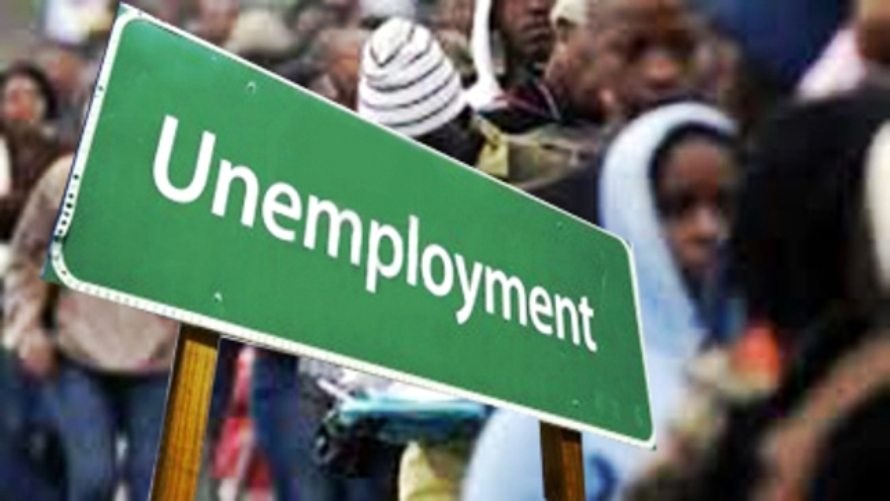Nigeria’s unemployment rate has seen a dramatic drop from 33.1% reported in March 2021 to 4.1% for the first quarter of 2023 and 5.3% in the 4th quarter of 2022.
The National Bureau of Statistics (NBS) released its employment data for the first quarter of 2023, indicating a substantial improvement in the job market.
As per the newly-revised Nigeria Labour Force Survey (NLFS), which now aligns with International Labour Organisation (ILO) guidelines, the unemployment rate in the country has been reported at a promising 5.3%.
New Methodology – The NBS enhanced its data collection process for the NLFS by sampling 35,520 households across Nigeria.
- The new approach provides for ongoing data collection throughout the year, delivering national-level results on a quarterly basis, and state-level results annually.
Key Highlights
Employment Rates on the Rise – The data shows an uptick in the percentage of working-age Nigerians (defined as persons aged 15 years and above) who were employed: 73.6% in Q4 2022 and 76.7% in Q1 2023.
- This indicates that a majority of Nigerians were engaged in some form of employment for at least one hour per week, earning pay or profit.
Underemployment and Wage Employment – The rate of underemployment, defined as those working less than 40 hours a week but willing to work more, stood at 13.7% in Q4 2022 and declined to 12.2% in Q1 2023.
- The percentage of those in wage employment was 13.4% in Q4 2022, dropping slightly to 11.8% in Q1 2023.
Gender and Demographic Insights – About one-third of employed persons (36.4% in Q4 2022 and 33.2% in Q1 2023) worked fewer than 40 hours per week.
- This trend was more prevalent among women, individuals with lower educational qualifications, the youth, and those residing in rural areas.
Entrepreneurial Activities and Household Support – The majority of employed Nigerians operated their own businesses or engaged in farming, with 73.1% doing so in Q4 2022 and 75.4% in Q1 2023.
- A further 10.7% in Q4 2022 and 10.6% in Q1 2023 were involved in unpaid household businesses.
Apprenticeship and Internships – The report also highlighted that 2.6% of the employed population were engaged as apprentices or interns in Q4 2022, and this figure declined to 2.2% in Q1 2023.
Terms Clarified
The NBS report clarified several terms:
- Employed at work – Individuals who worked for pay or profit for at least one hour in the last 7 days.
- Employed temporarily – Those who typically work but were absent due to reasons like vacation or sick leave.
- Active search – Taking specific actions to look for paid work or start a business in the past month.
- Available to work – Being ready to start work either last week or in the next two weeks.
Optics
While the NBS’s Q1 2023 unemployment report paints an optimistic picture of Nigeria’s job market, there are important caveats that warrant attention.
- First and foremost, the new methodology—although in line with international standards—may not accurately reflect the lived experiences of many Nigerians.
- The revised NLFS categorizes people engaged in menial jobs as “employed,” even if they are earning well below the minimum wage and operating under poor working conditions.
- This raises questions about the quality and sustainability of such employment, and whether this truly represents an improving job market or merely a shift in classification.
- Additionally, the NBS’s report lacks a side-by-side comparison with data gathered using the previous methodology.
- This has traditionally been standard practice when there’s a change in methodology to offer a more transparent and comprehensive view.
- The absence of this comparative data may leave analysts, policymakers, and the general public wondering if the changes were implemented to present a rosier economic outlook deliberately.
Finally, while the reported 5.3% unemployment rate and other positive trends should be seen as encouraging indicators, they should also be taken with a grain of skepticism.
The new methodology, although more robust and internationally compliant, may not wholly capture the complexities and challenges of the Nigerian employment landscape.
This makes it crucial for stakeholders, ranging from policymakers to investors, to consider these nuances when interpreting the data and planning their next steps.
























I still haven’t gotten a workplace after or remote job after 3month of solid search